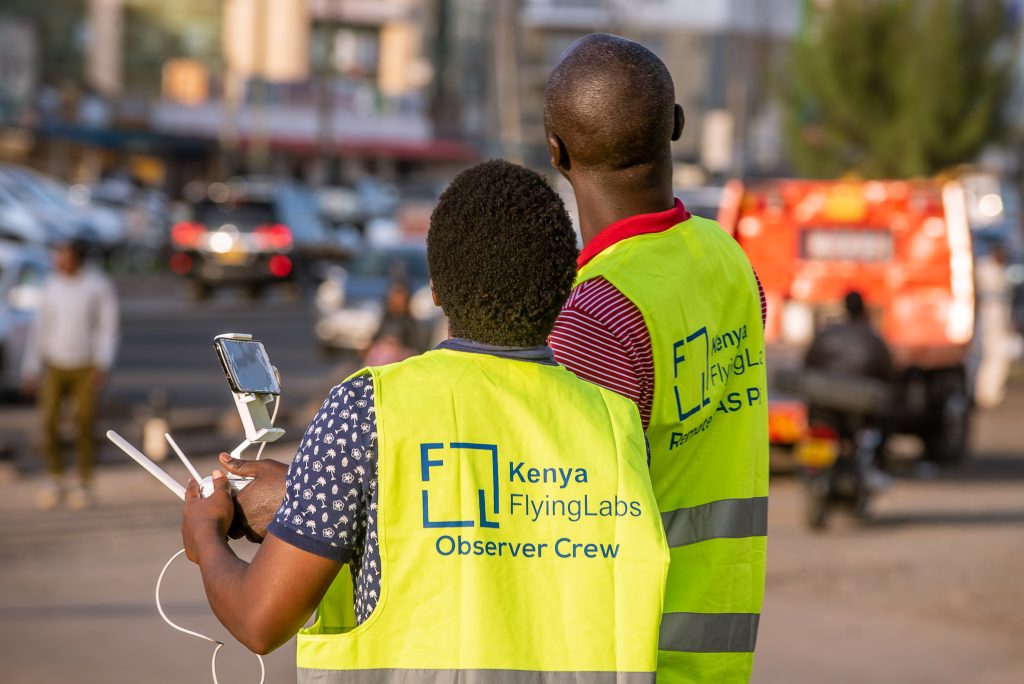
Kenya Flying Labs Pioneering Drone Technology for Social Good
In the evolving landscape of drone technology, one company stands out in Kenya for its innovative use of drones to solve pressing social challenges. Kenya Flying Labs, under the leadership of CEO Cleopa Otieno, is a non-profit social enterprise dedicated to using drones for social good. Since its inception in 2017, the organization has played a major role in fields ranging from healthcare to agriculture and wildlife conservation, empowering communities with cutting-edge technology.
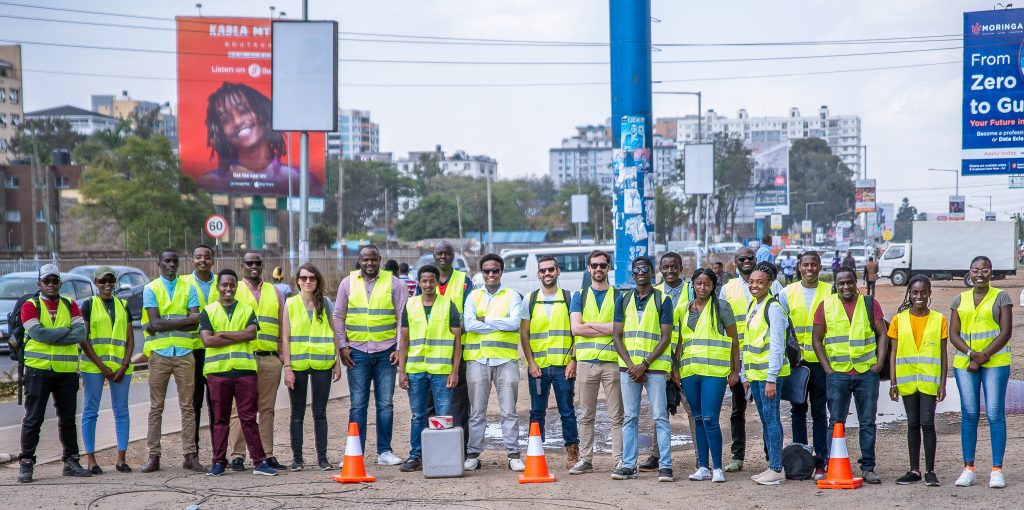
From Legalization to Innovation
Kenya Flying Labs began its journey at a time when drone use in Kenya was still in its infancy. “Drones only became legal in 2020,” Cleopa explains. “Before that, while we had started operations, our work was limited by regulations that banned drones. But as soon as the Kenya Civil Aviation Authority (KCAA) implemented the first regulations, we were among the first to get approvals and began work in earnest.”
Since then, the company has made amazing strides, using drones in diverse sectors to create impactful change.
Using Drones for Social Impact
At its core, Kenya Flying Labs focuses on harnessing drone technology to gather valuable data that can be used for societal benefits. “It’s not just about flying the drone,” Cleopa clarifies. “It’s about the data you collect and what you do with that data.”
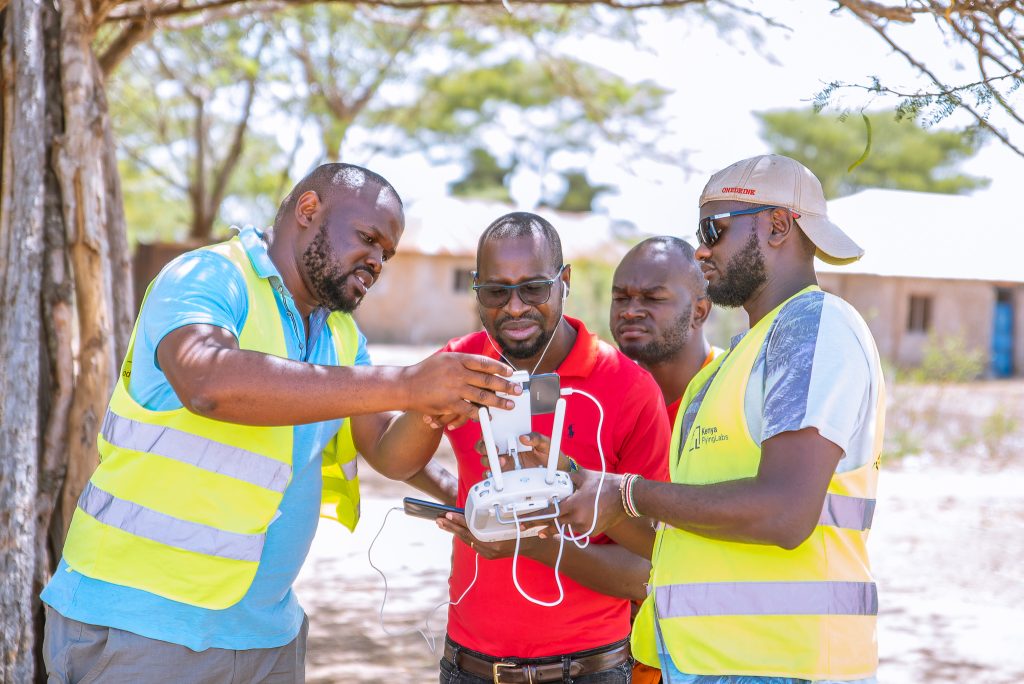
One standout project involved mapping invasive species in Tana River County. An aggressive plant species called Mathenge, introduced in the 1980s, had taken over large swathes of land, preventing other vegetation from growing. Using drones equipped with sensors, Kenya Flying Labs scanned nine villages, gathering high-resolution data. With the help of AI tools, the team was able to identify areas where Mathenge was most prevalent, and communities were then mobilized to mechanically remove the weed.
Drones are also being used to monitor and mitigate health risks. In flood-prone areas with poor drainage systems, the organization collects drone data and applies AI to detect hotspots where waterborne diseases are likely to occur. Authorities can then use this information to take preemptive measures, potentially saving lives.
Challenges with BVLOS Projects
Although Kenya Flying Labs has achieved success, there are still hurdles in drone operations, especially with projects requiring Beyond Visual Line of Sight (BVLOS) clearance. “For projects that need that kind of use case, it either takes too long trying to navigate regulatory approvals, or it doesn’t happen. So, a lot of clients or people who want to do that tend to give up,” Cleopa shares.

Currently, Kenya Flying Labs is working on a project in Eldoret with a partner called Wingcopter, focusing on medical deliveries. While approvals were eventually secured, they are operating under Extended Visual Line of Sight (EVLOS), not full BVLOS. “Extended EVLOS becomes expensive because you must have spotters maybe every kilometer. We are doing nine kilometers on that route, so in every one or two kilometers, you must have somebody spotting with a radio, communicating with the pilot, and keeping eyes on the drone at any given time. The ideal situation would be where we only have the pilot, coordinating with the person receiving the commodities at the landing site.”
Wildlife Conservation and Traffic Management
Kenya Flying Labs is also at the forefront of using drones for wildlife conservation. Traditionally, wildlife censuses have been done manually using helicopters, a time-consuming and often inaccurate method. But with drones, AI can be employed to count animals on the go, providing more precise and faster results. “You can know how many zebras, giraffes, or other animals are in a particular area before the drone even lands,” Cleopa says.

In urban settings, drones are playing a crucial role in understanding traffic patterns. In partnership with EPFL, a Swiss university, Kenya Flying Labs conducted a traffic monitoring project along Ngong and Jogoo Road. The data collected is currently being analyzed to help uncover the root causes of traffic congestion in these areas, which could eventually inform better traffic management systems.
Integrating AI into Drone Technology
The infusion of artificial intelligence into drone operations is one of Kenya Flying Labs’ most significant achievements. AI tools are used to analyze the high-quality data collected by drones, leading to better-informed decisions. This approach is changing the way problems are identified and solved, from counting animals to detecting disease-prone areas and managing agricultural lands.
Also read: Transforming Aviation Machinery and Technical Aspect with AI
For example, drones equipped with AI can now help farmers manage their crops more effectively. By creating detailed maps, AI tools can identify specific areas that need treatment, reducing the waste of chemicals and improving crop yields.
Preparing Youth for the Future of Aviation
As drones become more integrated into various sectors, Cleopa foresees a future where advanced air mobility becomes the norm. “In the coming years, we could see drones ferrying people just like taxis,” he notes. To prepare for this future, Kenya Flying Labs is committed to equipping young people with the skills they will need to thrive in the drone and aviation industry.
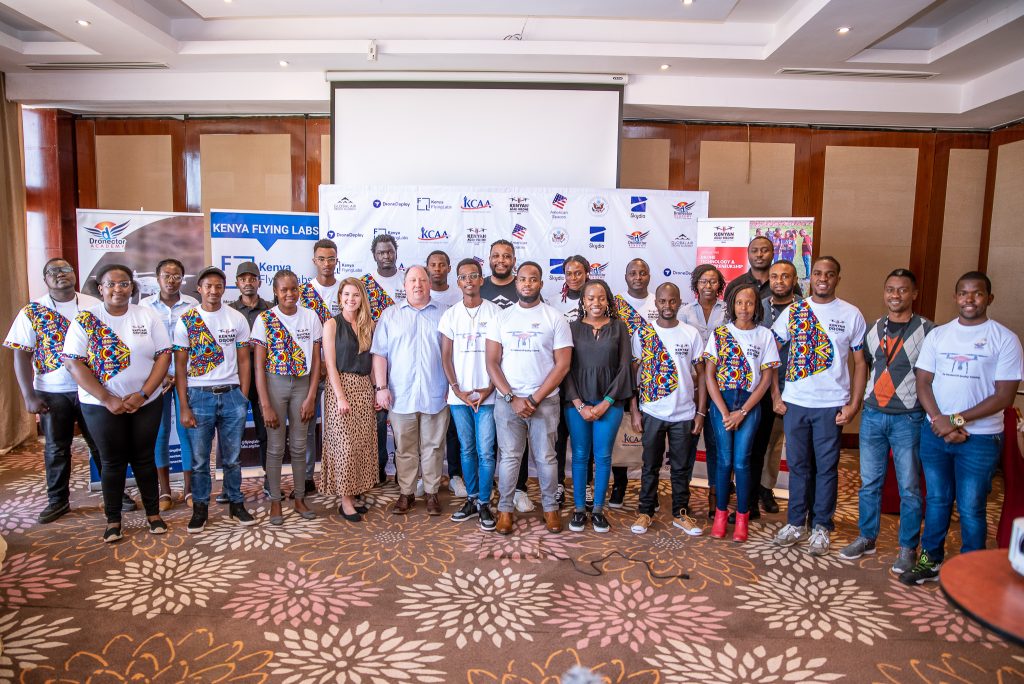
“We believe the future of aviation is unmanned,” Cleopa says. The organization runs STEM programs that introduce children to drone technology and AI, ensuring that the next generation is prepared for the jobs of tomorrow. On October 18th and 19th, Kenya Flying Labs will be hosting a STEM fair at the United States International University (USIU), where students will showcase their newly acquired skills in drone technology.
Building Local Capacity and Drone Manufacturing
Kenya Flying Labs is passionate about building local capacity for drone technology. “In terms of skills to be able to repair and maintain these drones locally, we are still limited. Most likely, if you have a broken drone, you’re probably shipping it back or waiting for expertise to come,” he notes.
Also read: A New Era of Efficiency and Safety in The Aviation Industry
However, Cleopa is optimistic that through their work in Konza Technopolis, these challenges will be addressed. “Part of our efforts at Konza is technology transfer and skills development. We want to see youth who can handle most of these issues locally. Could drones be manufactured locally? Absolutely. We would start with assembly, but the vision is to have full-scale drone manufacturing in Kenya. If you have 3D printers and the necessary materials, you can produce some of these parts locally. In the near future, we believe this will take off.”
Exploring Solar-Powered Airships
Kenya Flying Labs is also breaking new ground with its exploration of solar-powered airships. The company is working with a South African manufacturer called Cloudline on a project funded by IDRC. “We had a consortium of three organizations: Kenya Flying Labs as the operator, Cloudline as the manufacturer, and Jomo Kenyatta University of Agriculture and Technology (JKUAT) as a research institute. The project is focused on how airships can reduce the time and cost of medical deliveries in remote parts of Western Kenya,” Cleopa explains.
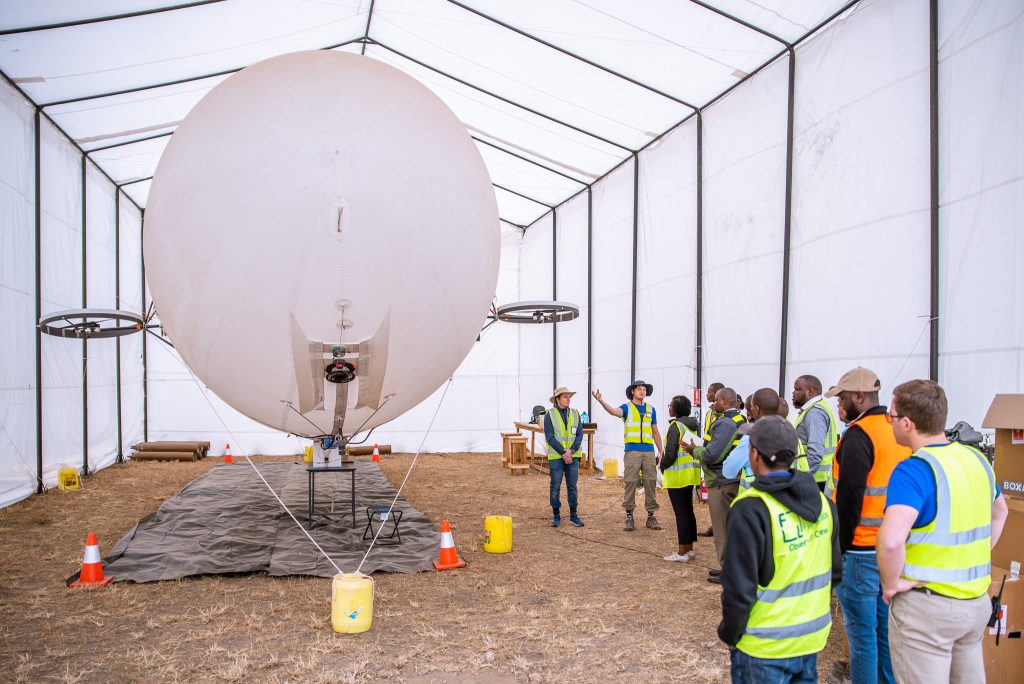
The airship, which was tested in Konza before a multi-agency team, is powered by solar energy and can fly for an entire day if conditions are right. While it wasn’t approved for medical deliveries initially, the platform is being recommended for other use cases like wildlife monitoring or mapping.
Kenya Flying Labs is now moving forward with the DJI Flycat 30, a flagship cargo drone from DJI, to resume the medical delivery project. The airship, which can lift 20 to 50 kilograms depending on altitude, is ideal for transporting supplies like medicine and paperwork in remote clinics. Cleopa adds, “We are still looking to use the airship for wildlife monitoring.”
Looking to the future, Cleopa is optimistic. “We are just scratching the surface,” he says. “There’s so much more that drones can do, and Kenya is well-positioned to be a leader in this space.”
Kenya Flying Labs is a non-profit drone company based in Nairobi, Kenya, specializing in using drones for social impact in healthcare, agriculture, wildlife conservation, and more. For more information, visit Kenya Flying Labs.
This is good news. Drones contribute greatly to operational efficiency and their impact cannot be understated.